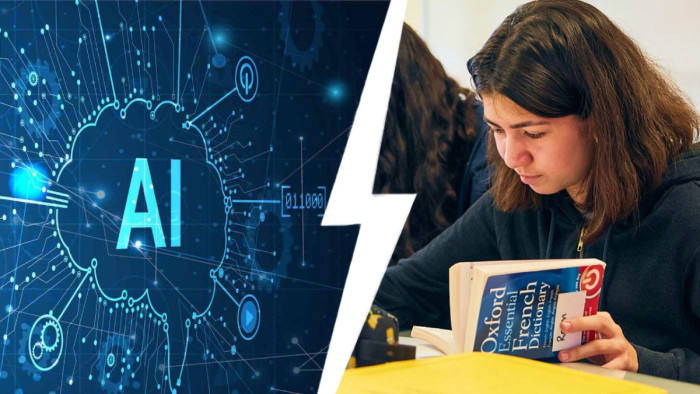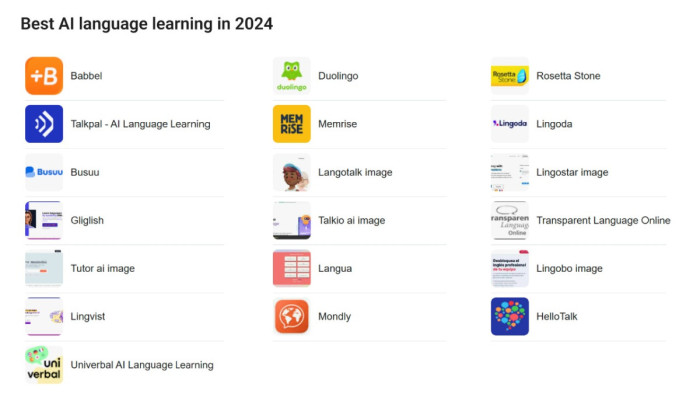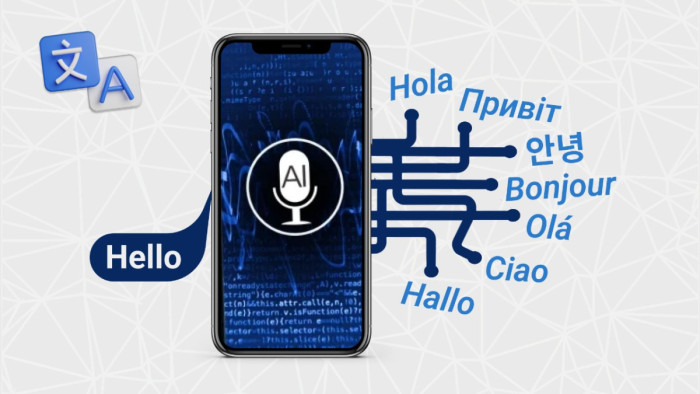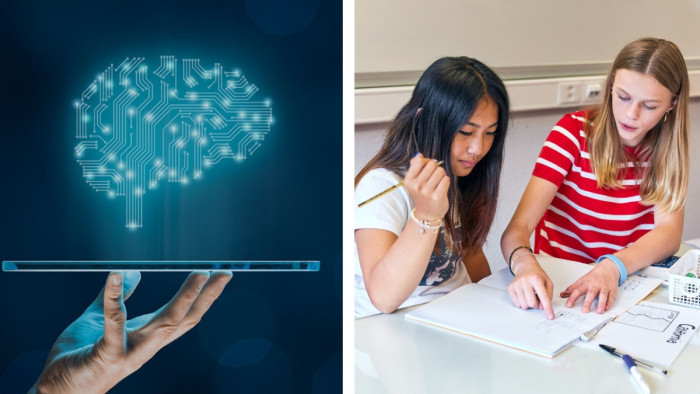Learning Foreign Languages in the Age of Artificial Intelligence (AI)
02.12.242847
The rapid advancement of artificial intelligence (AI) is transforming the way we think about the world, and education and travel are no exception.
AI is opening up new ways to learn, personalizing educational experiences, and making language learning more accessible and enjoyable. But what does this mean for the future of study abroad, and, in particular, for language learning travel in native-speaking countries?
This article explores the evolving role of AI in education and language learning, its benefits, and the challenges it poses.
AI as a Personalization Tool in Language Learning
One of the most promising applications of AI in language learning is its ability to personalize the learning process. Traditional language learning currently still relies on standard methods such as studying foreign languages in schools, practicing a new language on your own on various platforms, traveling to language schools in native countries to improve the conversational component, and quickly acquiring a deeper vocabulary through live communication with native speakers.
With the rapid development of Artificial Intelligence, AI-powered platforms can adapt to the pace, style, and preferences of each learner. Using adaptive algorithms, they track progress, identify strengths and weaknesses, and select exercises that best suit the learner's goals.
For example, apps like Duolingo and Babbel use AI to provide users with a personalized learning path based on their performance. The AI technology in these apps adjusts the difficulty level and type of exercises in real-time. Language students who supplement their experience with such tools are often more confident and better prepared for immersion if they plan to study abroad further.
Improving the Language Travel Experience with AI
Language travel has traditionally been about immersion — students travel to a foreign country, live among native speakers, and learn the language in a natural environment. Now, AI can enrich this experience by offering real-time language support and cultural insights, allowing students to engage more deeply with their environment. For example, AI-powered translation apps can help students navigate conversations and social situations in real-time, while other apps can provide cultural and historical context for learning about local landmarks and traditions.
In addition to helping overcome language barriers, AI can also facilitate personalized travel recommendations based on user interests, helping students make the most of immersive experiences.
AI can suggest cultural events, local attractions, or educational resources that align with a student’s learning goals, making the learning process more engaging and effective.
New Frontiers in Language Practice Through AI-Powered Interactions
AI is also revolutionizing how students can practice language skills outside of traditional classrooms. AI conversation tools such as chatbots and virtual language partners simulate realistic dialogues in the target language. These virtual conversations can help students practice the spoken component of the target language without fear, providing a safe space to make mistakes and gain confidence.
Platforms like Meena or Google’s Replika offer advanced conversational AI that can engage users in near-human conversations, allowing them to practice everyday language, ask questions, and improve pronunciation.
Incorporating these tools into language travel programs could mean that students have ongoing language practice at their fingertips, bridging the gap between structured lessons and real-world application.
AI and Cultural Understanding: Challenges and Opportunities
While AI provides powerful tools for language learning, it cannot provide the immersion that lies at the heart of language travel. For students to truly gain intercultural experience, they will still need to rely on real-life interactions with the people of the destination.
Furthermore, there is a risk that over-reliance on AI tools could create a passive learning experience. If students turn to AI for instant translations or context without interacting directly, they may miss out on opportunities to practice and fully immerse themselves in the language and culture. This challenge highlights the importance of combining AI tools with human-centered learning experiences.
A Balanced Language Travel Approach
As AI continues to evolve, it is clear that it will play an increasingly influential role in language learning and language travel. The most effective approach is likely to involve a balanced combination of AI-driven personalization and human-centered experiences.
In the age of AI, language teachers, program organizers, and students must rethink how language is learned and experienced.
Education agencies and language schools should encourage students to access language learning apps, virtual conversation partners, or AI-powered cultural resources before and during their travels, which can greatly improve their preparation and comfort in a new environment.
However, the core of language travel—meaningful cultural exchange and personal growth—remains unchanged and irreplaceable, despite technology.
























